Carbon Monoxide Poisoning Victims
Ovadia Law Group Can Help You!
If you or someone you know has been affected by carbon monoxide poisoning, Ovadia Law Group is ready to help. We have the experience and knowledge to guide you through the legal process. Our team specializes in personal injury cases like carbon monoxide poisoning and will work to ensure you get the compensation you deserve. Whether it’s covering medical bills, lost income, or the emotional toll of your experience, we are here to fight for your rights.
Contact us today for a free consultation and let us help you move forward.
Call us now!
What is Carbon Monoxide Poisoning?
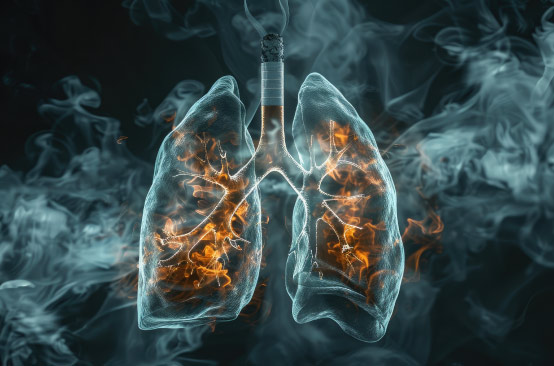
Carbon monoxide (CO) is a colorless, odorless gas that is incredibly dangerous when inhaled. It can accumulate in enclosed spaces due to faulty equipment, inadequate ventilation, or improper use of appliances like furnaces, stoves, or generators. Prolonged exposure to CO gas can result in severe illness or even death, often without the victim realizing what’s happening until it’s too late.
Symptoms of Carbon Monoxide Poisoning include:
Headaches
A common and early symptom of carbon monoxide poisoning is a persistent headache. When carbon monoxide enters the bloodstream, it replaces oxygen, starving the brain of this crucial element. As a result, headaches can develop rapidly and intensify if exposure continues. According to the Mayo Clinic, these headaches can feel like intense pressure around the head and are often accompanied by other symptoms like dizziness and nausea.
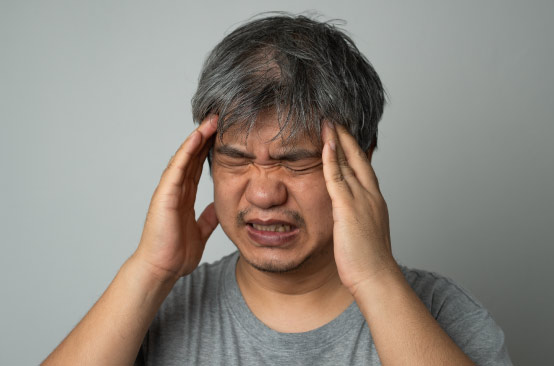

Dizziness
Carbon monoxide poisoning can cause sudden dizziness or a feeling of lightheadedness. This occurs because carbon monoxide binds with hemoglobin in the blood, reducing the amount of oxygen that reaches the brain. As oxygen levels drop, balance and spatial awareness are affected. If left untreated, dizziness may worsen, potentially leading to fainting or collapse. Learn more about the effects of CO exposure on balance from Healthline.
Weakness
Another key symptom of carbon monoxide poisoning is muscle weakness. As oxygen levels in the body decrease, muscles begin to tire easily, making even simple movements difficult. The body relies on oxygen to produce energy, and without it, fatigue sets in quickly. In high levels of exposure, this weakness can become so severe that individuals are unable to walk or lift objects. The CDC highlights the importance of
recognizing early signs of weakness, especially if you’re exposed to potential sources of carbon monoxide like faulty heaters.

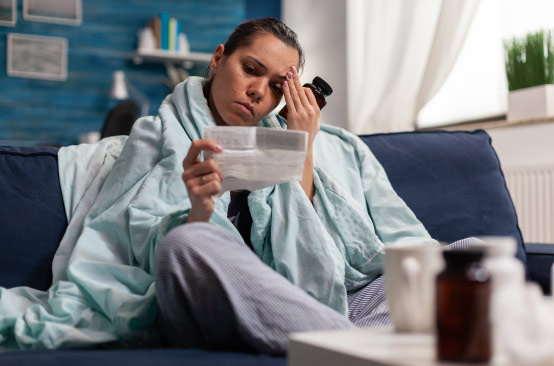
Nausea and Vomiting
Nausea is often one of the first signs of carbon monoxide poisoning, frequently misinterpreted as a stomach bug or food poisoning. This is the body’s response to the toxic gas entering the bloodstream, and as exposure continues, nausea may progress to vomiting. Persistent vomiting can lead to dehydration, further weakening the body’s ability to fight off the effects of the gas. To learn more about the connection between nausea and carbon monoxide poisoning, visit Cleveland Clinic.
Confusion
As carbon monoxide builds up in the body, brain function starts to decline. Cognitive symptoms like confusion, memory problems, and impaired judgment are common during CO exposure because the brain is not receiving the oxygen it needs to function correctly. This confusion can make it difficult to recognize the danger you’re in and may prevent you from taking action. The National Library of Medicine explains how carbon monoxide impairs cognitive functions and affects mental clarity.
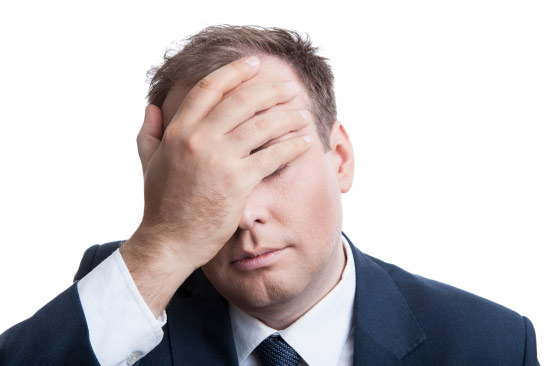
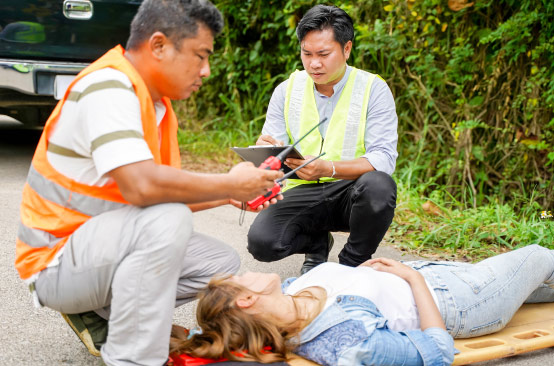
Loss of Consciousness
High levels of carbon monoxide exposure can result in fainting or complete loss of consciousness. This happens when oxygen levels in the brain become dangerously low. If carbon monoxide poisoning reaches this stage, it is life-threatening and requires immediate medical attention. According to Johns Hopkins Medicine, prolonged exposure without treatment can cause irreversible brain damage or death.
Chest Pain
Individuals with pre-existing heart conditions are at greater risk of experiencing chest pain during carbon monoxide exposure. The gas forces the heart to work harder to pump oxygen-deprived blood, causing chest tightness or angina. Over time, this can lead to more severe cardiovascular issues such as heart attacks. The American Heart Association discusses the link between oxygen deprivation and heart-related symptoms during carbon monoxide poisoning.
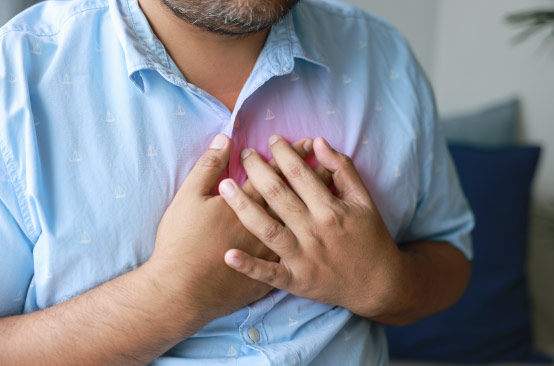
In severe cases, carbon monoxide poisoning can lead to brain damage, heart problems, and death. If you or a loved one has experienced any of these symptoms, it’s crucial to seek medical attention immediately and determine if exposure to CO gas was the cause.
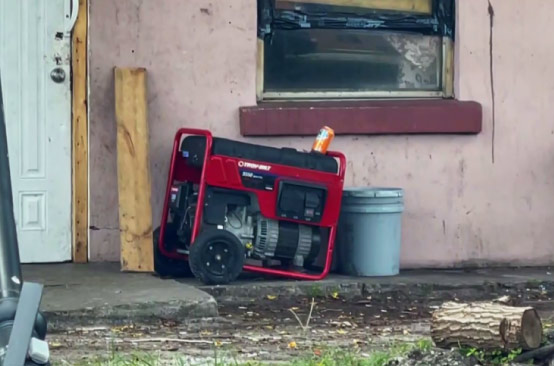
Read about
"Two Dead, Two Children Hospitalized After Carbon Monoxide Exposure"
“In Southwest Florida, two adults tragically died, and two children were hospitalized after carbon monoxide poisoning caused by improper use of a generator during a power outage. This heartbreaking event serves as a reminder to avoid using fuel-burning devices in enclosed spaces…”
Common Sources of Carbon Monoxide Exposure
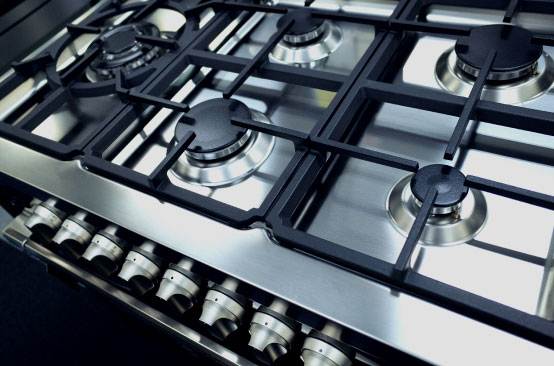
Ovadia Law Group represents people victims of CO Exposure Poisoning
Call our lawyers at

Carbon monoxide can come from several everyday sources, and these sources can be found in both homes and workplaces. Understanding where carbon monoxide might come from can help you avoid exposure and recognize potential dangers. Below are the most common sources of carbon monoxide poisoning:
Malfunctioning or Improperly Ventilated Gas Appliances
Carbon monoxide is produced by gas appliances that burn fuel. Stoves, water heaters, and furnaces are among the most common sources of carbon monoxide leaks. When these appliances are malfunctioning or not ventilated properly, the carbon monoxide they emit has no way to escape, allowing it to accumulate inside the building. This can happen when exhaust vents are blocked or when the appliance is not installed correctly. Regular maintenance of these appliances is crucial to preventing carbon monoxide exposure. Energy.gov
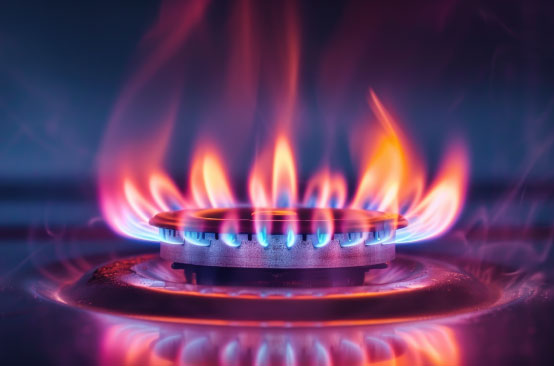
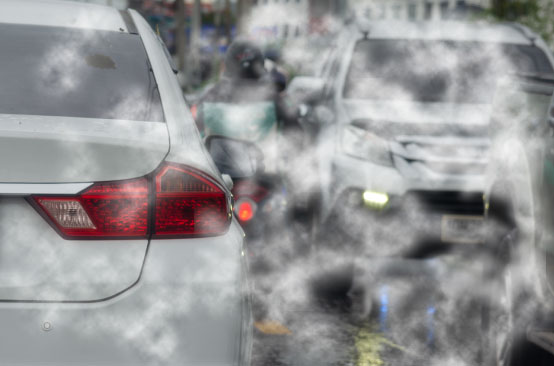
Vehicles Running in Enclosed Spaces
One of the most dangerous sources of carbon monoxide is vehicle exhaust. When cars, trucks, or other vehicles are left running in enclosed spaces, such as a garage, they release carbon monoxide into the air. Because carbon monoxide is odorless and invisible, it can quickly build up to dangerous levels, especially in confined spaces. It’s important to never leave vehicles running in a garage, even with the door open. CDC Carbon Monoxide Dangers
Generators or Other Fuel-Burning Equipment
Generators or Other Fuel-Burning Equipment: During power outages, many people use portable generators to keep their homes powered. However, these devices can also emit high levels of carbon monoxide, especially if used indoors or too close to windows or doors. The improper use of outdoor equipment such as lawnmowers, chainsaws, or grills inside or near enclosed spaces can also result in carbon monoxide buildup. Always keep generators outside, at least 20 feet from the house, and never use them in an enclosed space. Consumer Product Safety Commission on Generator Safety.
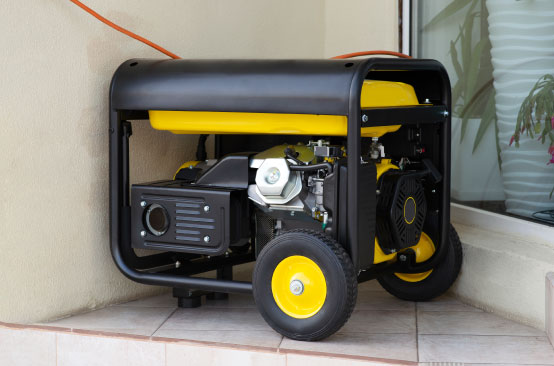
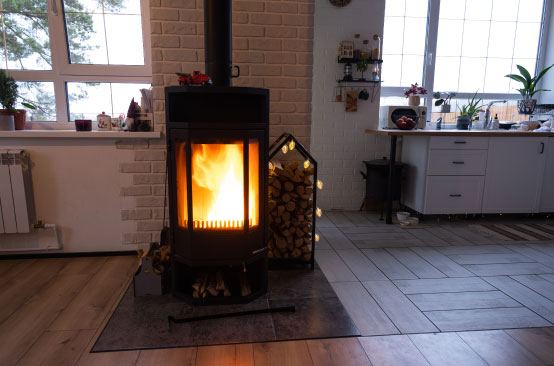
Blocked or Faulty Chimneys
Chimneys are designed to vent smoke and gases, including carbon monoxide, out of your home. If a chimney is blocked by debris or hasn’t been properly cleaned, carbon monoxide can back up into the house instead of being safely vented outside. Similarly, cracks in the chimney can allow carbon monoxide to leak into the living areas of a home. Regular chimney inspections and cleanings are key to avoiding carbon monoxide buildup in homes with fireplaces or wood-burning stoves. National Fire Protection Association.
Gas-Powered Tools or Equipment Used Indoors
Many tools and machines, like power washers, space heaters, and portable heaters, are powered by gas. When these tools are used indoors, particularly in areas with poor ventilation, they can emit dangerous amounts of carbon monoxide. Construction workers or individuals working in enclosed spaces are especially at risk. Even in well-ventilated areas, prolonged use of gas-powered tools can lead to carbon monoxide exposure, making proper ventilation and safety measures essential. OSHA Guidelines.
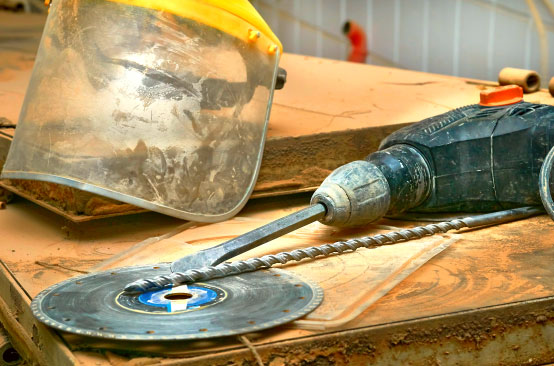
Read about
"Florida Health Warns of Carbon Monoxide Dangers"
“The Florida Department of Health highlights the serious risks of carbon monoxide (CO), a colorless and odorless gas that can cause sudden illness or death. Exposure often results from gas-powered devices like generators, vehicles, and appliances used in enclosed spaces. Common symptoms include headache, nausea, and confusion, with severe cases leading to death. The department provides safety guidelines to help residents prevent carbon monoxide poisoning…”
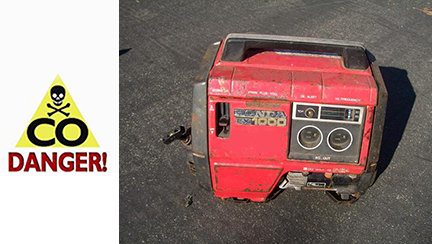
Who is Liable for Carbon Monoxide Poisoning?
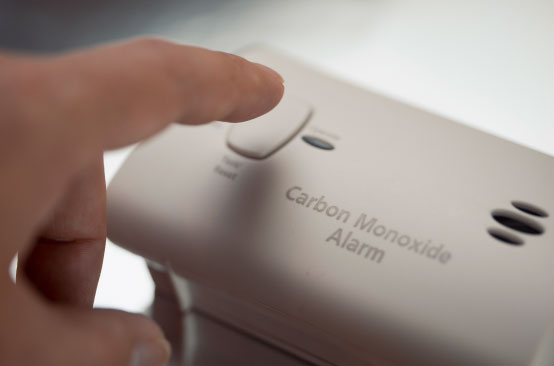
In cases of carbon monoxide poisoning, liability often falls on individuals or entities that have neglected their responsibility to ensure the safety of those exposed to the toxic gas. Identifying the
liable party can be crucial in pursuing legal action and obtaining compensation for injuries or wrongful death caused by carbon monoxide exposure.
Here are some common parties who may be held accountable:
Landlords
Landlords have a legal obligation to ensure that rental properties are safe for tenants. This includes maintaining gas appliances, ensuring proper ventilation, and installing carbon monoxide detectors where required by law. If a landlord fails to uphold these responsibilities, they can be held liable for any injuries or fatalities caused by carbon monoxide poisoning. For example, if a tenant is exposed to carbon monoxide due to a malfunctioning furnace or stove that wasn’t properly maintained, the landlord may be at fault. State laws often require landlords to install carbon monoxide detectors, and failure to do so can be considered negligence. Learn more about landlord liability.

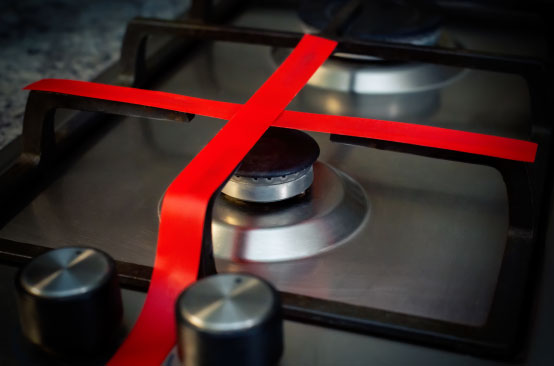
Manufacturers
Manufacturers of appliances that emit carbon monoxide, such as gas heaters, stoves, or generators, are responsible for ensuring their products are safe for use. If an appliance is defective or fails to operate safely, the manufacturer could be held liable for any resulting carbon monoxide poisoning. This includes issues like faulty designs, manufacturing defects, or inadequate safety warnings. A product liability claim may be brought against the manufacturer if it can be proven that a defective product caused the carbon monoxide leak. Consumer Reports on Product Liability.
Employers
Employers are responsible for ensuring a safe working environment, especially in industries where there is a risk of carbon monoxide exposure, such as construction, manufacturing, or transportation. If an employer fails to provide adequate ventilation or proper equipment to protect workers from carbon monoxide exposure, they can be held liable. Workers exposed to carbon monoxide on the job may be entitled to workers’ compensation or may be able to file a personal injury lawsuit if employer negligence is involved. OSHA Standards for Carbon Monoxide in the Workplace.
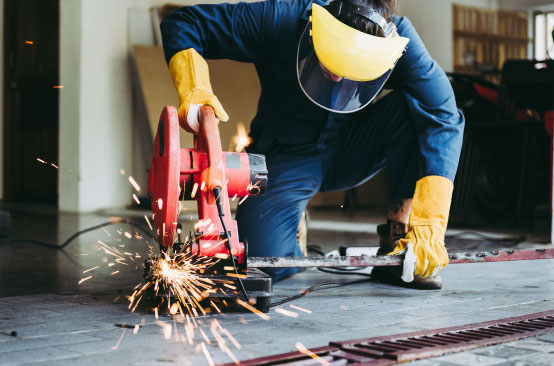
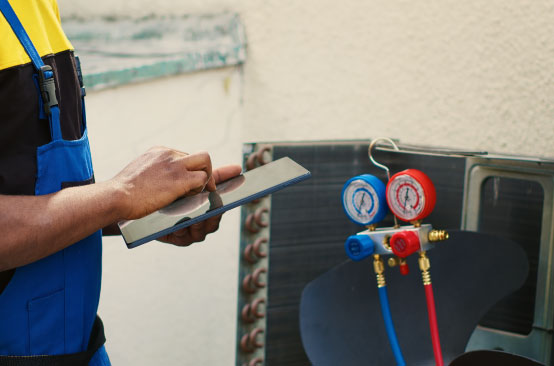
Property Owners
Property owners, whether residential or commercial, have a duty to maintain a safe environment for visitors or occupants. This includes ensuring that gas appliances are functioning properly and that there is sufficient ventilation. If a guest or visitor is poisoned by carbon monoxide due to poor maintenance, the property owner can be held liable for the incident. For example, if a hotel fails to maintain its heating system, resulting in carbon monoxide exposure for guests, the hotel owner could be found negligent. Property Owner Liability Guidelines.
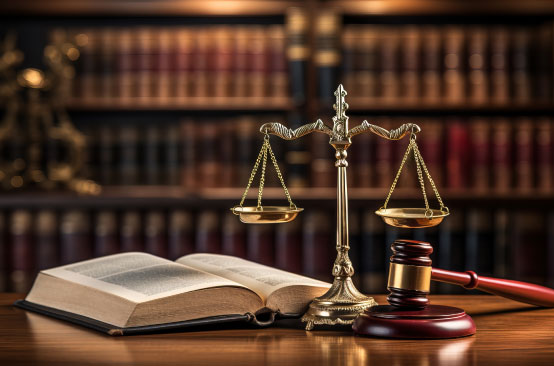
Legal Recourse
In each of these cases, victims of carbon monoxide poisoning may have legal recourse to pursue compensation for medical bills, lost wages, pain and suffering, and other damages. Proving liability often involves investigating the source of the carbon monoxide leak and demonstrating that the responsible party failed to take necessary precautions to prevent exposure. Working with an experienced personal injury attorney can help victims navigate the complexities of these claims and ensure that justice is served.
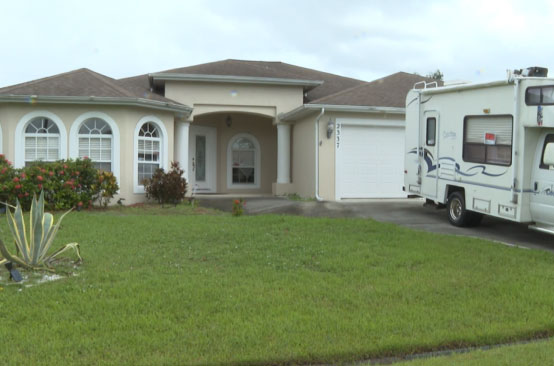
Read about
"1 Dead, Another Hospitalized After Apparent Carbon Monoxide Poisoning in Port St. Lucie"
“In February 2023, a tragic incident occurred in Port St. Lucie, Florida, where one person died, and another was hospitalized due to suspected carbon monoxide poisoning. Investigators reported that the poisoning likely resulted from improper ventilation while using a generator inside the home during a power outage. Authorities are reminding residents of the dangers of carbon monoxide, particularly during storm season…”
What Are Your Legal Rights?
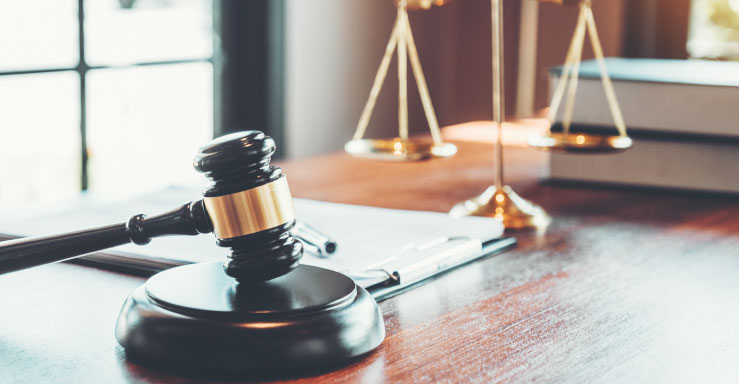
If you have suffered from carbon monoxide poisoning, Florida law provides you with several rights that allow you to seek compensation and justice. Victims of carbon monoxide poisoning can pursue legal claims against negligent parties, whether it’s a landlord, employer, manufacturer, or property owner, depending on the circumstances. Understanding your legal rights can help you recover damages and hold those responsible accountable.
Below are some key rights you should be aware of:
Right to Medical Compensation:
If you have been exposed to carbon monoxide and suffered injuries as a result, you have the right to seek compensation for all medical expenses related to the poisoning. This includes emergency room visits, hospital stays, medications, ongoing treatments, rehabilitation, and any future medical care required due to the effects of the poisoning. Carbon monoxide poisoning can cause long-term health issues, and you are entitled to recover these costs from the responsible party. Learn more about personal injury damages.
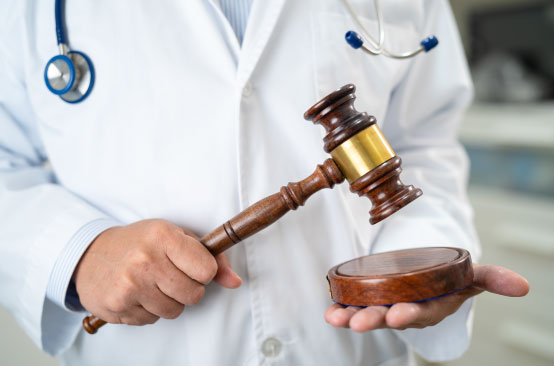

Right to Recover Lost Wages:
Carbon monoxide poisoning can leave victims unable to work for extended periods. Whether it’s due to immediate medical treatment or long-term effects such as neurological damage, you have the right to recover any wages lost due to your inability to work. Additionally, if your earning capacity has been permanently diminished because of the poisoning, you can pursue compensation for the loss of future earnings. This ensures that you are not left financially vulnerable as a result of someone else’s negligence. Find out more about lost wages claims.
Right to Compensation for Pain and Suffering:
Beyond physical injuries, victims of carbon monoxide poisoning often experience significant emotional and psychological distress. Florida law allows you to seek compensation for pain and suffering endured due to the poisoning, including anxiety, depression, trauma, and other non-economic damages. Carbon monoxide exposure can have lasting effects on your quality of life, and you are entitled to be compensated for the emotional toll it takes. Understanding pain and suffering compensation.
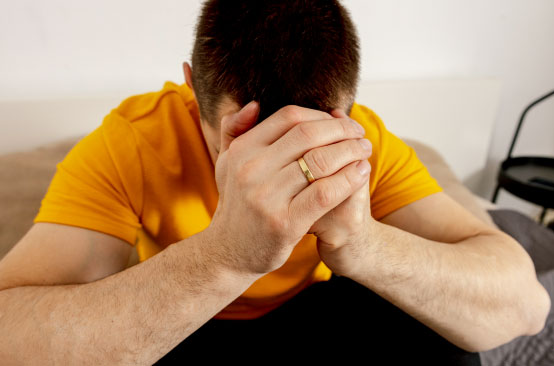

Right to Rehabilitation and Ongoing Care:
Carbon monoxide poisoning can leave victims unable to work for extended periods. Whether it’s due to immediate medical treatment or long-term effects such as neurological damage, you have the right to recover any wages lost due to your inability to work. Additionally, if your earning capacity has been permanently diminished because of the poisoning, you can pursue compensation for the loss of future earnings. This ensures that you are not left financially vulnerable as a result of someone else’s negligence. Find out more about lost wages claims.
Right to File a Wrongful Death Claim:
If a loved one has passed away due to carbon monoxide poisoning, family members have the right to file a wrongful death claim against the responsible party. This type of claim seeks to recover funeral expenses, lost financial support, emotional suffering, and other damages related to the loss of a family member. Wrongful death lawsuits hold negligent parties accountable and help surviving family members manage the financial and emotional burden of their loss. Learn about wrongful death lawsuits.
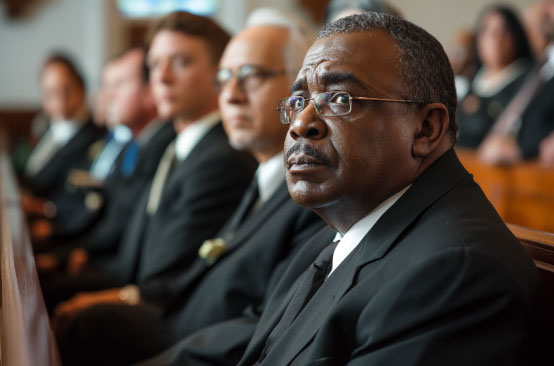
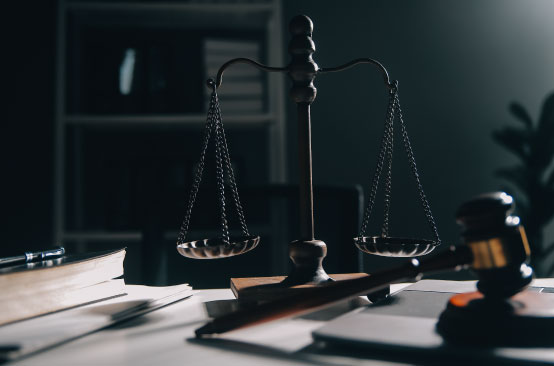
Right to Hold Responsible Parties Accountable:
Whether the poisoning occurred due to faulty equipment, inadequate maintenance, or lack of safety precautions, you have the right to hold the negligent party accountable. Florida law provides avenues to pursue legal action against landlords, employers, manufacturers, or property owners who failed in their duty to protect you from carbon monoxide poisoning. This ensures that responsible parties are legally held to account for the harm caused by their actions or negligence. Know your rights in Florida personal injury cases.
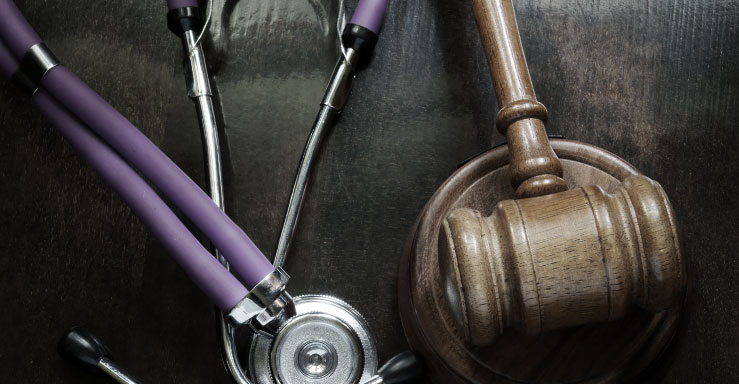
These legal rights ensure that victims of carbon monoxide poisoning can seek justice and recover compensation for their injuries and losses. Understanding these rights is key to navigating your case and holding the negligent party responsible. Working with an experienced personal injury attorney can help you secure the compensation you deserve while making sure that your legal rights are fully protected.
Read about
"Carbon monoxide poisoning at Broward school prompts more testing"
“The principal of Cypress Bay High School in Weston plans to welcome students back to class on Monday morning after carbon monoxide poisoning prompted school staff to seek medical attention on Friday. A Broward firefighter who responded was also affected….”
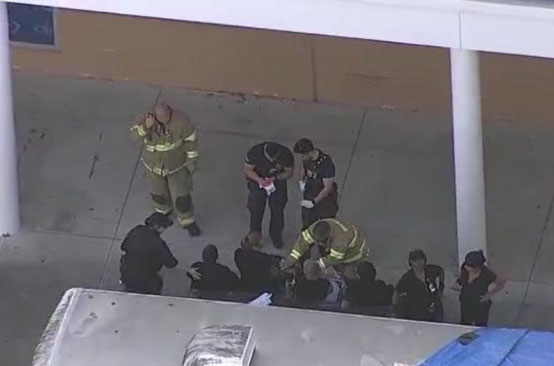

How Ovadia Law Group Can Help
Our team at Ovadia Law Group has extensive experience handling carbon monoxide poisoning cases. We work closely with medical experts, safety professionals, and investigators to build a strong case on your behalf. Our goal is to ensure that victims of carbon monoxide poisoning receive full compensation for their injuries and that those responsible are held accountable.
Why Choose Ovadia Law Group?
When dealing with the serious and often life-threatening effects of carbon monoxide poisoning, it’s essential to have experienced legal representation on your side. Ovadia Law Group (OLG) stands out for several reasons that make them the best choice for handling your case. From
compassionate service to a proven track record of success, here are the key reasons to choose OLG:
At Ovadia Law Group, we understand the physical, emotional, and financial toll that carbon monoxide poisoning can take on victims and their families. Our attorneys provide personalized and empathetic support throughout the entire legal process, ensuring that you feel heard and cared for every step of the way. We know that every case is different, and we treat every client with the individual attention they deserve. Learn more about our commitment to client care.
With years of experience handling personal injury cases, including those involving toxic exposure like carbon monoxide poisoning, Ovadia Law Group is well-equipped to take on complex cases. Our legal team has successfully represented countless clients in similar situations, helping them secure the compensation they need to recover. Our attorneys are well-versed in Florida law and understand how to navigate the challenges of toxic exposure cases to achieve the best possible outcomes for our clients. See our success stories.
Ovadia Law Group has a history of winning substantial settlements and verdicts for our clients. Whether negotiating with insurance companies or fighting in court, we are dedicated to securing the maximum compensation possible for your medical bills, lost wages, pain and suffering, and other damages. Our firm’s aggressive approach ensures that responsible parties are held accountable for their negligence, and we don’t rest until justice is served. Read client testimonials.
We believe that everyone deserves access to quality legal representation, regardless of their financial situation. At Ovadia Law Group, we work on a contingency fee basis, meaning you don’t pay any legal fees unless we win your case. This ensures that you can focus on your recovery while we handle the legal side, without worrying about upfront costs. Learn about our no-fee guarantee.
Ovadia Law Group goes beyond just fighting for financial compensation. We offer a full range of legal services to ensure you are supported at every stage of the case. From gathering evidence and consulting with medical experts to negotiating with insurance companies and representing you in court, our attorneys are with you every step of the way. We aim to take the burden off your shoulders, allowing you to focus on your health and recovery. Find out how we can help you.
At Ovadia Law Group, we pride ourselves on being accessible to our clients. We are available for consultations at your convenience, whether that’s in person, over the phone, or virtually. Our legal team is always ready to answer your questions and provide updates on your case. We understand that your time is valuable, and we strive to make the legal process as seamless and stress-free as possible. Contact us today to schedule a free consultation.
Learn more about Carbon Monoxide Poisoning
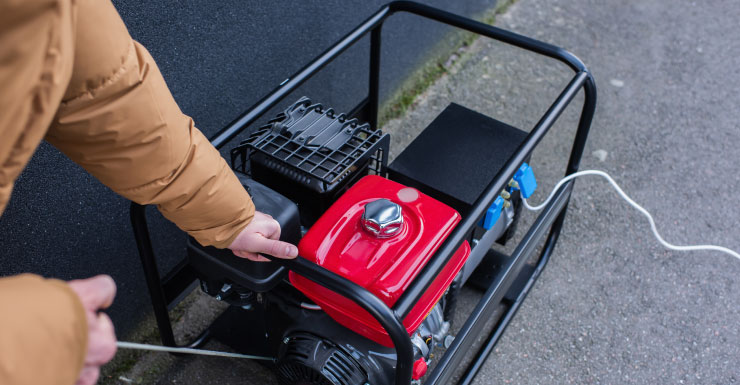
Florida Health Warns of Carbon Monoxide Dangers
Carbon monoxide (CO) is an odorless, colorless, poisonous gas that can cause sudden illness and death if present in sufficient concentration in the ambient air. Sources: CO is produced as a
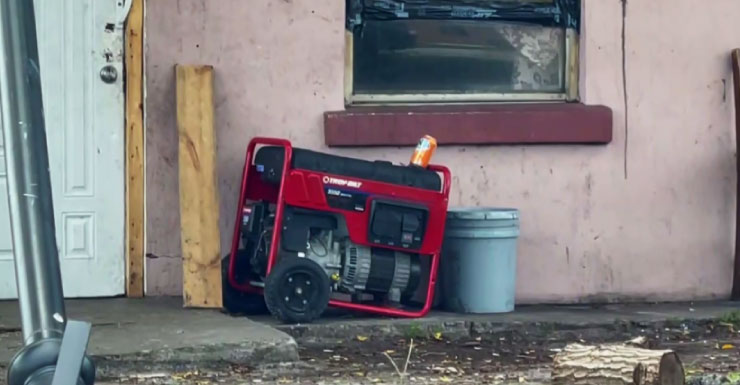
2 dead, 2 kids hospitalized after suffering from carbon monoxide poisoning
Photo by: WINK News Two people died and two children were taken to the hospital after suffering carbon monoxide poisoning. A family of five lost power and made the fatal
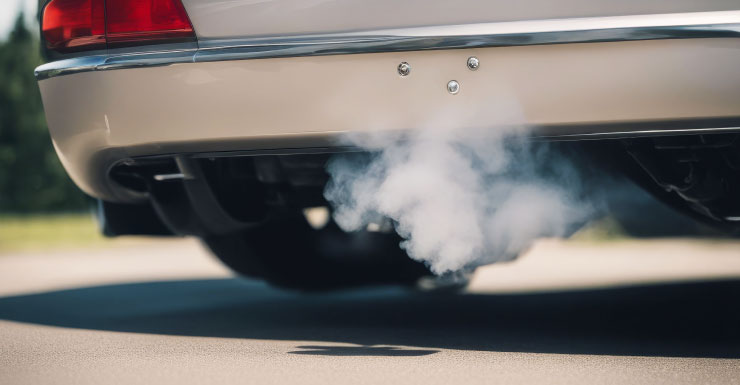
1 dead, another hospitalized after apparent carbon monoxide poisoning inside Port St. Lucie home
An elderly woman is dead from apparent carbon monoxide poisoning while her husband remains in the hospital. Port St. Lucie Police responded to the couple’s home on SW Scodella Terrace
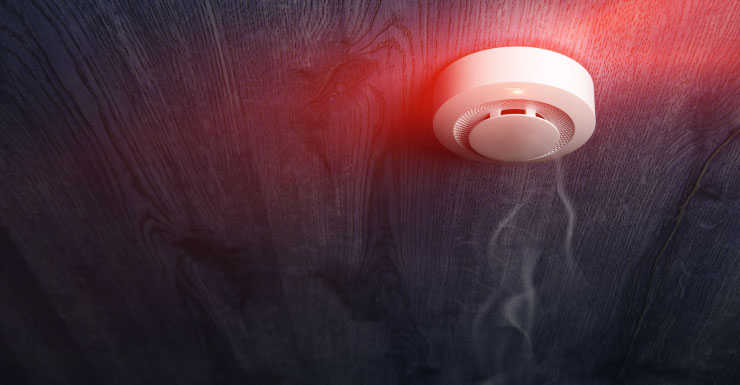
Carbon monoxide poisoning at Broward school prompts more testing
The principal of Cypress Bay High School in Weston plans to welcome students back to class on Monday morning after carbon monoxide poisoning prompted school staff to seek medical attention
Contact Ovadia Law Group Today
If you or a loved one has been affected by carbon monoxide poisoning, time is critical. Reach out to Ovadia Law Group for a free consultation. We’ll listen to your story, explain your rights, and help you take the first steps toward justice.
Call 1-800-674-9396 for personalized legal services from start to finish!



